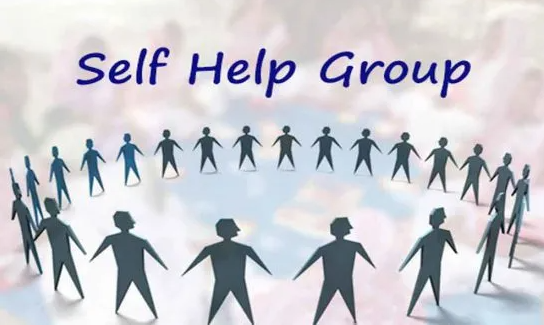SHGs Empower Women for Prosperity- 2.0
Relevance
- GS Paper 2 Development Processes and the Development Industry — the Role of NGOs, SHGs, various groups and associations, donors, charities, institutional and other stakeholders.
- Tags: #SelfHelpGroups #SHG #WomenEmpowerment #UPSCMains2024
What are Self help Groups (SHG’s)?
Self-Help Groups (SHGs) are small, community-based organizations comprising individuals, typically from economically disadvantaged backgrounds. Members come together to pool their resources, savings, and collective efforts to address common socio-economic issues.
Advantages of self-help groups
Financial Empowerment
- Self-help groups (SHGs) provide a platform for women to save money and access credit.
- This can help them to start or expand businesses, improve their homes, and invest in their children’s education.
- Example: SMILE Self-Help Group in Tamil Nadu, India, has helped its members to start businesses such as tailoring, food processing, and handicrafts.
Social Empowerment
- SHGs provide a space for women to come together and share their experiences.
- This can help them to build confidence, develop leadership skills, and challenge social norms.
- Example: Sakhi SHG in Uttar Pradesh, India, has helped its members to speak out against domestic violence and child marriage.
Skill Development
- SHGs often provide training and capacity-building programs, enabling members to acquire new skills and knowledge for various income-generating activities.
- Example: SHGs in Odisha have provided training in agriculture, handicrafts, and other skills, equipping members with the tools to generate income.
Poverty Alleviation
- SHGs contribute to poverty reduction by facilitating access to credit for entrepreneurial activities, which can lead to increased household income and improved living standards.
- Example: Deen Dayal Antyodaya Yojana – National Rural Livelihood Mission (DAY-NRLM) has successfully lifted millions of people out of poverty through SHGs in India.
Women’s Empowerment
- SHGs empower women by enhancing their economic independence and leadership roles, ultimately challenging traditional gender norms.
- Example: The success of SHGs like SEWA (Self Employed Women’s Association) in Gujarat is a testament to how these groups empower women in India.
Microenterprise Development
- SHGs often serve as platforms for the development and expansion of microenterprises, creating job opportunities and economic growth at the local level.
- Example: SHGs in Tamil Nadu have been engaged in microenterprise development, particularly in the handloom and handicraft sectors.
Community Development
- SHGs often engage in community development activities, such as sanitation programs, health awareness campaigns, and education initiatives.
- Example: In Andhra Pradesh, SHGs have been involved in sanitation programs to promote cleanliness and hygiene in their communities.
Self-help groups (SHGs) Role in Women’s Empowerment
- A study by the National Council for Applied Economic Research (NCAER) found that SHG membership increased women’s savings by 25%.
- A study by the National Bank for Agriculture and Rural Development (NABARD) found that SHG-linked microenterprises created over 10 million jobs for women.
- The National Rural Livelihoods Mission (NRLM) has facilitated the formation of over 7 million SHGs, reaching over 100 million women across India.
- A study by the World Health Organization found that SHG membership improved women’s health and nutrition outcomes.
Issues with Self Help Groups
Financial Challenges
- Inadequate access to credit: Many SHGs struggle to obtain loans from banks due to stringent requirements and lack of collateral.
- High interest rates: Even when SHGs secure loans, the interest rates are often high, making it difficult for them to repay and limiting their ability to invest in income-generating activities.
- Lack of financial literacy: Many SHG members lack financial literacy, leading to poor financial management and decision-making.
- Sustainability Challenges: SHGs often depend on external support and training. Without continuous guidance and resources, they may struggle to maintain their financial and entrepreneurial activities.
Operational Challenges
- Lack of skilled manpower: SHGs often lack access to skilled personnel for training and guidance in areas like accounting, marketing, and business development.
- Poor infrastructure: Many SHGs operate in rural areas with limited infrastructure, making it difficult to access markets, technology, and transportation.
- Limited market access: SHGs often struggle to connect with larger markets due to lack of marketing expertise and limited exposure to potential buyers.
Socio-cultural Challenges
- Gender inequality: Patriarchal norms and social biases can hinder women’s participation in SHGs and limit their decision-making power.
- Lack of social cohesion: Internal conflicts, lack of trust, and group dynamics can hamper the effectiveness and sustainability of SHGs.
- Low literacy levels: Low literacy rates among SHG members can pose challenges in understanding financial concepts, maintaining records, and accessing information.
Empowering SHGs: Addressing Key Challenges
- Identification and Assessment: Identify the specific issues faced by SHGs in a particular region or community. Conduct a comprehensive assessment to understand the root causes and severity of the problems.
- Capacity Building: Provide training and capacity-building programs to enhance the skills and knowledge of SHG members. Focus on financial literacy, entrepreneurship, and leadership development.
- Financial Inclusion: Facilitate access to formal financial institutions, such as banks, for SHG members. Promote savings, credit, and insurance services to improve their financial security.
- Community Mobilization: Encourage community participation and support for SHGs. Create awareness about the importance of SHGs and their role in community development.
- Conflict Resolution: Develop mechanisms for conflict resolution within SHGs. Encourage open communication and dialogue among members to address disputes.
- Sustainable Livelihoods: Diversify income sources for SHG members by promoting various livelihood activities. Support market linkages and value addition to enhance their economic sustainability.
- Government Support: Collaborate with government agencies to ensure SHGs receive the necessary support, resources, and policy backing. Advocate for pro-SHG policies at the local, state, and national levels.
- Resource Mobilization: Explore funding opportunities from government schemes, grants, and partnerships with non-governmental organizations.
- Awareness and Education: Conduct awareness campaigns to inform the wider community about the importance of SHGs and their positive impact. Encourage the involvement of local institutions, schools, and colleges in spreading awareness.
- Adaptive Strategies: Be open to adapting strategies and programs based on the evolving needs and challenges faced regularly review and modify interventions as necessary.
Self Help Groups (SHGs) have proven to be powerful catalysts for economic and social transformation. By fostering financial inclusion, empowering women, and promoting community development, SHGs are instrumental in building a more inclusive and prosperous society.
| Mains Question
Analyze the role of Self Help Groups (SHGs) in promoting women’s economic empowerment and social development in India. Discuss the key challenges and prospects. |








